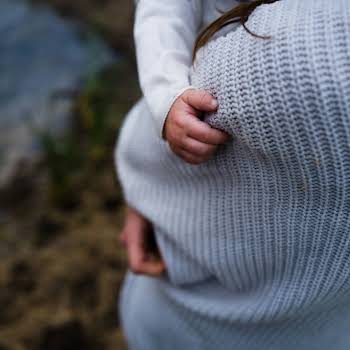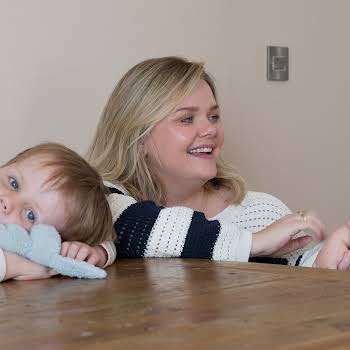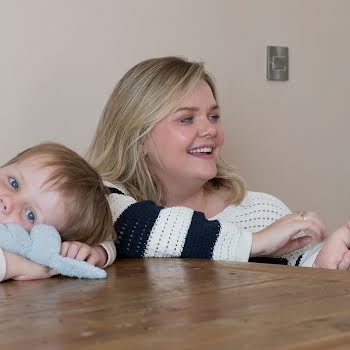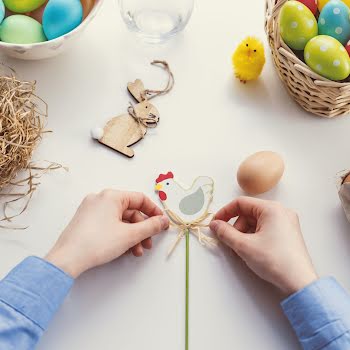
10 things to ask the midwife before you leave the hospital with your newborn
You’ve just had a baby, now what? As well as being the most joyful time in your life, those first few days with your newborn can often be overwhelming. Amanda Cassidy gets the low-down on post-birth advice from veteran mums...
It is possibly the cutest thing you have ever seen – those tiny fingers, that perfect skin. But it is also the most vulnerable thing you have ever laid eyes on – and now it’s your job to keep your baby safe, well and happy.
That’s why your midwife is such an important figure in those first few precious days after you’ve given birth. Your hormones are all over the place, your body has been through a lot and you can’t remember the last time you slept. You may thrive on love, pride and bags of jellies, but try to also remember to get all the help and advice you need now that the concept of the baby is a reality.
Although they are busy and may always seem rushed, it’s important you use the opportunity of your stay in the hospital to extract as much information as possible from your midwife. Once you leave the safety of the ward, you can feel like the rug has been pulled from under your feet a little, so dig that notebook out of the bottom of your maternity bag and arm yourself with as many details as you can.
Advertisement
Here’s what our mummy panel suggest you ask your midwife:
How to deal with baby’s bellybutton
Even after my third child, I struggled to remember how to change the nappy around the little stump left over from the umbilical cord. It does look a bit gicky but your baby won’t feel a thing, so have a midwife sit with you for a few nappy changes so you don’t feel panicked or that you might hurt them (you won’t). – Ellen, mum of Sam.

Learn how to swaddle properly
There are differing opinions over whether you should wrap up your baby snugly or not. Some think it can inhibit limb growth, but I found it very effective and kept my baby feeling very secure; just like she was inside my belly.
Learn the correct way to wrap your baby into their blanket so they sleep soundly and don’t ‘startle’ as much. Without the cosiness of your womb walls, the world can feel quite large for baby. Don’t underestimate the power of placing your hand gently on their tummy for reassurance. – Kate, mum of Sienna and Mabel.
Perfect bath time
On about day two, the hospital nurses might suggest you give your baby their first bath.
Advertisement
I worried about this the whole night beforehand as I didn’t know what to expect. There is a lot of crying. In fact, it might be the first time you see your baby in distress, but it passes and they will get used to it and eventually enjoy bathtime.
It is a nice idea to ask daddy to be there for the first bath. This became a tradition in our family that daddy always gave the first bath. The midwives will show you the best way to clean baby in a safe, fast way to minimise tears. – Amanda, mum to Eva, Bobby, Isabella.

Discover how to wind
Winding a baby is a science in itself. No baby is the same, and I had various methods for each of my children that I discovered over time. You will eventually figure out what suits your baby best but it might take a few weeks.
Rubbing the base of my palm in circles around their back for a bit usually worked, but your midwife will show you how to work your mummy magic. – Joanne, mum to Jack and Sophie.
Ask about how to look for infection
Some people I know did get infected stitches, or their c-section scar didn’t heal correctly. You will probably have a public health nurse do your checkup a few days after you leave the hospital, but it is a good idea to ask your doctor what to look out for, so you catch it as early as possible.
Advertisement
Same for mastitis – a condition you can get if your breasts get infected. It is quite common while breastfeeding, but the quicker it is spotted, the better. A high temperature is usually the first sign. – Julie, mum to Frankie.
Get the latch right
Even if you feel like a right pain, keep asking the midwife to sit with you the first few times you are trying to latch the baby on and ask her to monitor you.
I spent many frustrated hours in silent agony behind those hospital curtains because I didn’t want to annoy the hospital staff. It was a big mistake and resulted in very sore feeds.
Yes, they are busy, but they want to make sure every mum leaves the hospital feeling confident about feeding their baby – make sure you take the time to get it right. If you still can’t get it right, ask for the lactation consultant. Don’t feel weird about it – that is what she is there for and you owe it to your baby to do everything you can to make this a pleasant experience for both of you. – Jude, mum to Thomas and Kate.
Know the signs of PND
Every new mum feels overwhelmed and under-confident. You have just had a major life experience which you can never prepare fully for. On top of that, you have the most vulnerable creature that you have to keep alive.
You’re hurt, and you are swimming in hormones, and you will cry a lot. It’s when those normal baby blues pass that things can get more complicated. Ask your midwife what the signs of a more serious Post Natal Depression might be. Try to have your partner or your mum there too so they can help you recognise it should it come your way. – Tracey, mum to Belle and Teddy.
Advertisement
Temperature watch
Around the time I had my daughter, I would have listed ‘watching temperatures’ as one of my main hobbies. Is the baby’s room too hot? Too cold? Are they wearing enough clothes? Is the bath hot enough? And their body temperature had me all up in a heap.
It is a good idea to have a laser thermometer, so you don’t get too preoccupied, but make sure you know what to do if your baby does get too hot. – Olivia, mum to Thea
Figure out nap times/sleeping positions
Obsessing over sleep patterns is usually a waste of your time at this early stage. Your baby should sleep a lot the first few weeks as they are growing rapidly. I was really shocked that all the baby did was eat and sleep at the start. It is a good idea to ask your public health nurse about when you should wake them to feed or how many hours you can expect them to sleep just to give yourself a reality check. Sleeping positions also caused me a lot of concern, but here in Ireland, it is advised we let babies sleep on their backs. – Amy, mum to Lorcain.
Reflux advice
Reflux in babies can often go undiagnosed for a few weeks. It can be a very distressing time for babies as they are very uncomfortable after every feed. We would have to keep my son sitting upright for a half an hour after every feed which was quite difficult, especially in the middle of the night! Worst cases may have to be treated with medication, but please do ask your nurse, midwife or doctor what signs you should be keeping an eye out for. – Sarah, mum to Hugo and Ava.

Bad experiences
If you have the very unfortunate experience of having a midwife who you clash with, you can always request another. It is highly unlikely but a friend of mine had a very abrupt, bossy midwife who left her strapped to monitors on a bed, popped open a window for some “fresh air” and then disappeared for twenty minutes, while she lay there in sub-Arctic temperatures. Go with your gut feeling. – Kayla, mum to Sofia.
Advertisement
Expressing
I spent a long time researching how to express my breastmilk but nothing prepared me for how it went in reality. Some midwives will have opinions about not confusing the baby with bottle teats (it is actually called nipple confusion). But the reality is that there will be situations when you want your partner to feed the baby so you can sleep. Try to extract as much information from your midwife about what works best. Some suggest waiting until breastfeeding is ‘established’ before offering the baby a bottle. – Nicola, mum to Lola and Carla.
These are just a few hints and tips for the first few bewildering days in the hospital. Don’t worry, everyone feels the same but after just a few short days you too will realise that not only have you got this, but you are loving it.
Good luck, mums.
This article was originally published in June 2022.























